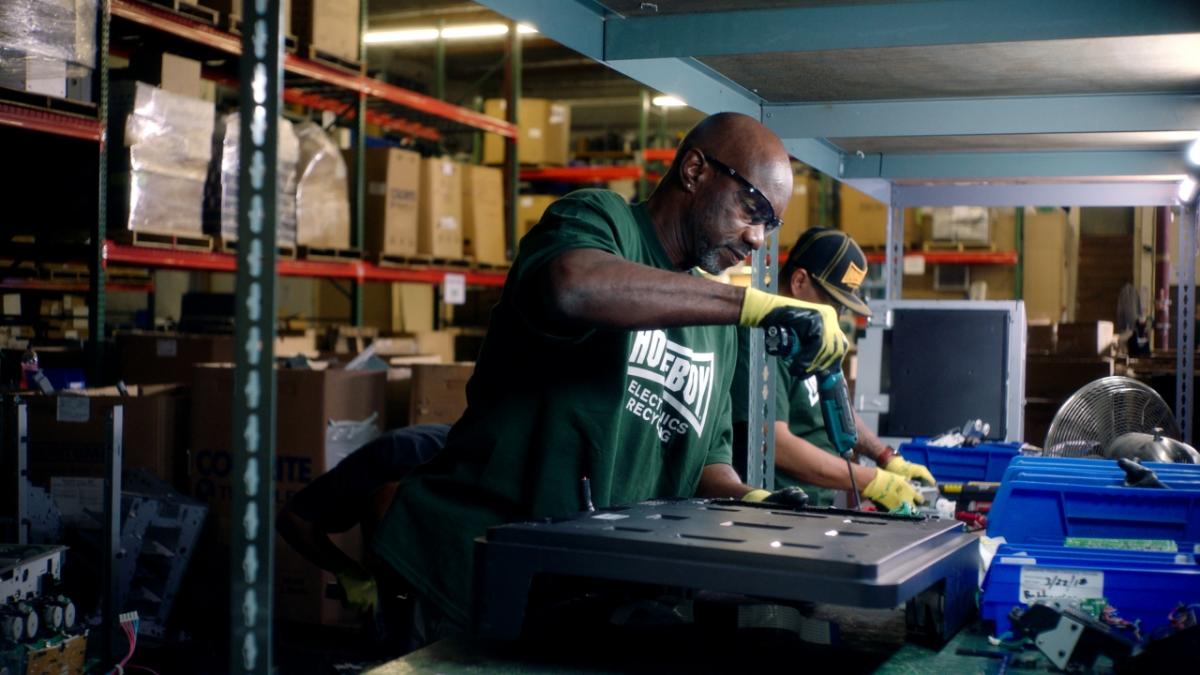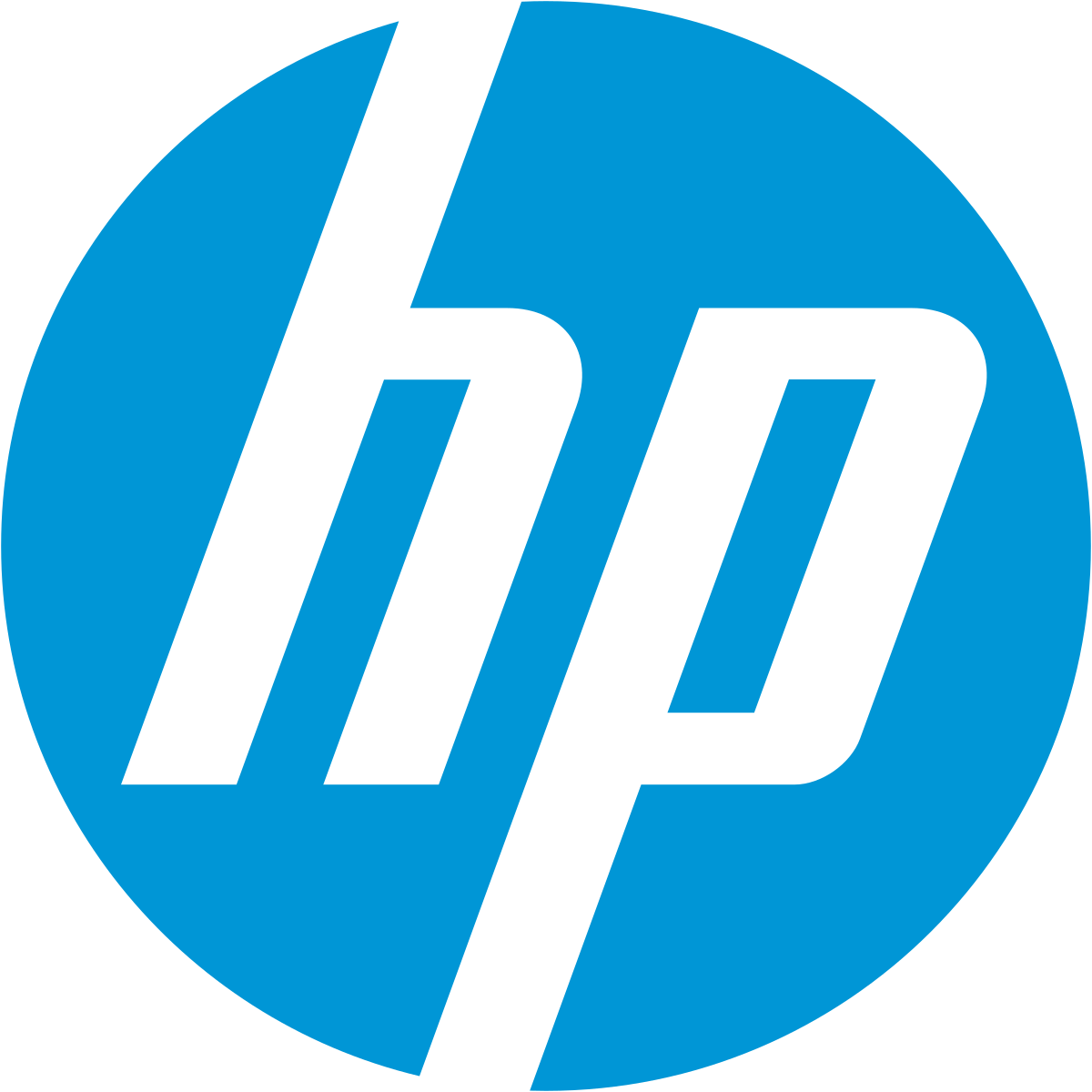Recycling Electronics While Rebuilding Lives
L.A.'s Homeboy Electronics Recycling is helping HP support local communities as it expands its pioneering closed-loop recycling system.

Exactly one year ago, Donnie Holland’s life changed completely.
After 20 years in prison and months of moving from one dreary job to another in Los Angeles, Holland got a tip to try interviewing at Homeboy Electronics Recycling. Now, as he heads out every day to companies to pick up old computers, printers and phones to recycle, Holland is proud to be the face of Homeboy and the good work it’s doing.
“Now I have a purpose,” he says. “I love the hands-on knowledge you get here at Homeboy Electronics Recycling. We're there for one another.”
Life-skills training and social services, too
Homeboy Electronics Recycling, part of Homeboy Industries, was founded nearly seven years ago with the mission of boosting the recycling rates of digital gadgets that too often get tossed in the trash — and in the process, creating good jobs for people who face employment barriers, including felons and former gang members. Homeboy Industries provides job and life-skills training and free social services while employing nearly 300 people at a host of social enterprises it owns along with Homeboy Electronics Recycling, including Homeboy Foods bakery, a farm-to-table café and farmers markets.
“This is a company full of changemakers,” says Kabira Stokes, Homeboy Electronics Recycling’s founder and CEO. “They're changing what we do with our electronics — and it's because we gave them a chance to change their lives.”
That mission has made Homeboy a critical link in the sustainable future that HP is building. HP recognized years ago that the traditional, linear “take, make, dispose” model of manufacturing isn’t sustainable on a planet where the population is booming and resources are dwindling.
“Sustainability, together with technology, can be a very powerful force for both growth and innovation,” says Patrick Gibbs, manager of North America hardware recycling for HP.
From cartridges to computers
HP’s pioneering closed-loop recycling program is a key component of this effort. To date, HP has used more than 784 million HP cartridges, 4 billion recycled plastic bottles and more than 86 million plastic hangers to manufacture new Original HP ink and toner cartridges. Today, over 80 percent of HP ink cartridges and 100 percent of HP LaserJet toner cartridges contain recycled plastics.1 In 2017, HP expanded its closed-loop production to printers, with computers next in line for the switch to closed-loop recycling.
The products are collected in multiple ways available at hp.com/recycle — for example, from consumers by HP’s recycling partners, such as Best Buy, which has drop-off recycling stations for all brands of hardware in its stores.
This is where Homeboy (a subcontractor to Sims Recycling, HP's core recycling partner) and other recycling collaborators come in. HP sends shipments of the end-of-service printers to Homeboy’s warehouses, where its employees manually disassemble the products, pulling out the plastics that can be recycled and reused.
Working together works best
Homeboy is helping HP recover more material to recycle and develop innovations to improve the closed-loop process. The partnership also enables Homeboy Electronics Recycling to expand its operations — which means it can hire more employees.
“Working with a manufacturer like HP is really the dream I had,” says CEO Stokes. “It’s the next level for our company. But what’s also super-exciting is to be involved in this closed-loop initiative.”
The partnership also has a personal connection that echoes HP’s historic commitment to helping local communities, which dates back to its founders, Bill Packard and Dave Hewlett: HP’s Gibbs grew up on the same street in Hollywood as Father Greg Boyle, the Jesuit priest who founded Homeboy Industries.
Together, consumers who recycle their computing equipment, HP Planet Partners and employees of recycling partners such as Holland are keeping tons of plastic out of landfills and oceans. “There are no small efforts here,” says Gibbs. “It’s the combined effort — society and businesses working together — that will solve the problems we face.”
Learn more about HP’s closed-loop recycling program.
1. 80% of Original HP ink cartridges contain between 45-70% recycled content. 100% of Original HP toner cartridges contain between 5-38% post-consumer or post-industrial recycled content. Does not include toner bottles. See www.hp.com/go/recycledcontent for list.

